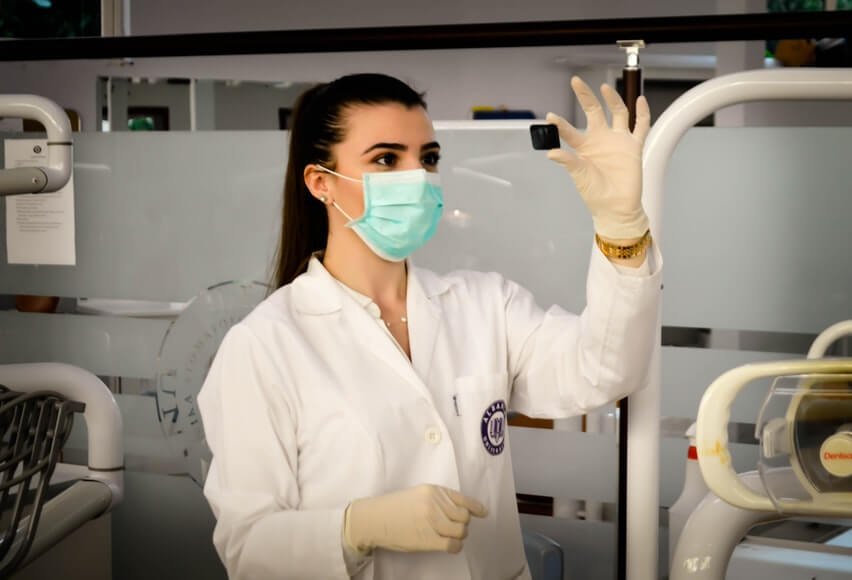At the peak of the COVID-19 pandemic, many people may have put aside their oral health. Some folks did not want to risk going out to visit their dentist, and others lost their dental insurance due to the economic downturn experienced around the world. But now, things are getting better. Naturally, people can now prioritize their dental health as they did before the pandemic.
You no longer have to worry about catching the virus from a dental visit. By now, most dental clinics have improved protection and protocols in place. You can easily find reliable practitioners of dentistry in Waterloo or other cities who implement strict health protocols and safeguards to prevent the spread of COVID and other infectious diseases.
As the world slowly returns to normalcy, your habits and lifestyle should too. Here are some tips on how to restore your oral health post-COVID.
- Make Time To See The Dentist
Don’t put off your dental consultation if you want to know the state of your oral health, especially if you have alarming symptoms, such as bleeding gums and tooth pain or sensitivity. It would be ideal to know of any oral problems you may have early on so you can do something about it immediately. If you put your dental needs on the back burner, the problem may worsen. This could then result in an infection or in you having to spend more on a drastic procedure.
- Quit Bad Habits
It’s common knowledge that smoking is bad for oral health. If you somehow picked up the habit over the pandemic or if your already existing habit worsened in that time, you may want to seriously consider quitting. While it may be difficult, it would certainly be beneficial for your teeth and gums.
If you’re not a smoker, however, there could be other bad habits that are affecting the physical condition of your gums, teeth, and mouth. As surprising as this may be, some seemingly mundane things you do every day could ultimately compromise your pearly whites. These habits include brushing your teeth too hard, chewing ice, and biting your nails.
- Take Care Of Your Mental Health
It may be far-fetched to think that your mental health could affect your oral health. However, at the peak of the COVID pandemic, scientists noted an increase in people who suffered from jaw pain due to bruxism—also known as teeth grinding. Experts believed that the spike in cases may have been due to anxiety and stress from COVID-19.
Even if you’re not suffering from jaw pain or bruxism, you may still want to take care of your mental health to prevent further complications that may be brought on by tension and stress. While your mental health may not be affecting your oral health right now, it would still be best not to invite that possibility.
- Make Flossing And Mouthwash Part Of Your Routine
A proper brushing habit is your first line of defense against cavities and other teeth-related conditions. However, it may not be enough to remove the tiny food particles lodged between your teeth and gums. If you haven’t visited your dentist in a long while because of the pandemic, there may be food particles and plaque stuck in the hard-to-reach crevices of your mouth. To help get rid of these things, you may need to make flossing a habit. This helps keep plaque at bay and prevents gum inflammation.
Another habit you might want to add to your daily oral hygiene is gargling with mouthwash. Mouth rinse is usually affordable and readily available. It can help in fighting tooth decay, preventing bad breath, and averting gingivitis or gum infection.
- Be Mindful Of What You Eat
Many people complained about gaining weight during the pandemic because of stress eating. Some of the things people may have indulged in include ice cream, candies, and sugary drinks. If this is true for you, you may want to start being more mindful of the food you consume. Eating a balanced diet and avoiding sweet foods can help promote good oral health, as well as reduce your chances of developing chronic metabolic diseases like diabetes.
- Consider A New Way Of Consuming Coffee Or Tea
If you have stained or discolored teeth, it may be due to your regular intake of coffee or tea. One way you could prevent the discoloration is by staying away from these drinks. However, these have several health benefits, and it would be difficult to cut them out of your diet completely. So, instead, you could change the way you enjoy them.
For one, you can use a straw with your coffee or tea. If you sip these drinks through a straw, they won’t have much contact with your teeth and hence won’t cause discoloration. But if you don’t usually take these drinks cold, it would be awkward to use a straw for hot drinks. The alternative solution would be to drink them quickly and in one sitting, as this minimizes your teeth’s exposure to these substances.
Lastly, remember to rinse off all traces of the drink in your mouth. You can do this with water, but if you can brush your teeth afterward, that would be better.
The Bottom Line
If you’ve overlooked your oral health during the pandemic, don’t feel too bad. It’s not too late to make up for the neglect and restore your oral health. All the tips above would make excellent additions to your oral habits, but remember, visiting a dentist and having your gums and teeth examined is an important first step.

